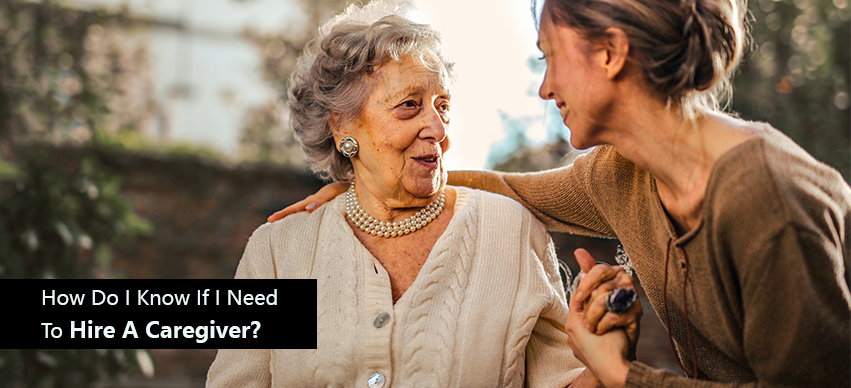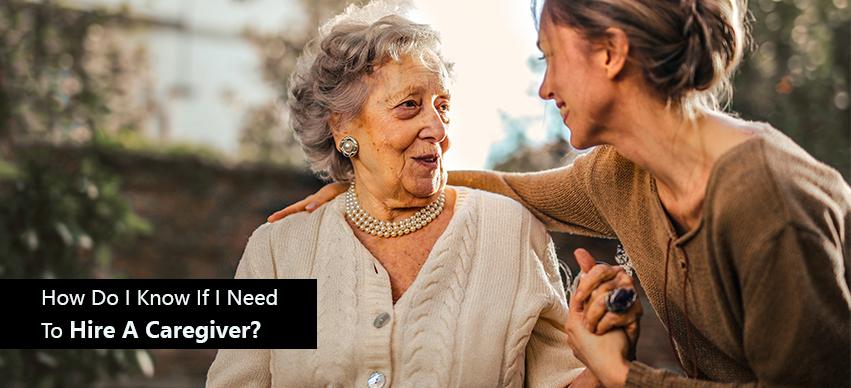Everyday Habits That Can Protect Your Eyes from Damage
4 Min Read


The stats are telling. Four in five adults aged 65 and over require daily help, and seven in 10 will require it at some point. Knowing when to hire the services of a caregiver, however, isn’t necessarily obvious. Often, people wait until an incident or injury has occurred because they even think about in-home care services. Waiting too long, however, can result in more care being needed, which can limit the choices in front of you. One option is staying home, as long as you provide appropriate care. Just watch out for the indicators that caregiving is needed, and be proactive in providing care for your loved one. Taking steps toward hiring a caregiver for your loved ones can protect them and help them age independently for longer. Below are eight signs that your loved one could benefit from caregiving.
Should you start to observe that your loved one is experiencing body odor or bad breath, or be lacking in personal hygiene, you should judge whether they are able to take care of their own personal needs. By employing the services of a caregiver, you can help to ensure they’re brushing their teeth, taking regular baths, and taking care of grooming and personal hygiene.
Seeing piles of unpaid bills and unsorted mail could mean that your loved one is failing to reply to mail that’s time-sensitive or forgetting to pay their bills. A caregiver can sort the important mail from the junk so that your loved one no longer falls behind on payments and correspondence.
Rotten food could be a sign that your loved one can’t make their way to the grocery store safely or isn’t even aware that they can’t make the journey. It could also mean they’re eating rotten food, or possibly aren’t eating at all. A caregiver can prepare food and help to ensure your loved one is getting necessary nutrition, helping them to age well for longer.
Your loved one’s home may be unsafe, which means that it might be time to look at hiring a caregiver. Clutter, throw rugs, uneven flooring, step-in bathrooms, and stairs can increase the risk of a fall, resulting in major health issues.
If your loved one is experiencing a disconnection from those close to them, sudden weight changes, or a decline in interest in their hobbies, it may be. a sign of isolation and loneliness. Ensuring you stay in regular contact with your loved one and employing a caregiver who gives them both social and personal attention can be key to their physical, mental, and emotional well-being. Companionship care must be provided if your loved one is experiencing loneliness or signs of depression.
If you feel that your loved one requires assistance with daily living activities, such as running errands, household maintenance, and grooming, it could mean that it’s the right time to employ a caregiver who can help to ensure your loved one’s general well-being is being attended to.
Does your loved one suffer from pain when they sit, rise from a resting position, or walk? Do they appear unsteady, or are they dragging their feet while walking? Should you observe any of these signs, your loved one may be at risk of a fall. Over 1.6 million elderly adults in the U.S. attend emergency departments a year for fall-related injuries. You should also be watchful for any unexplained bruises that could indicate a sign of a previous injury or fall.
There are approximately 40 million adults aged 65 years and over with a driver's license. This is a positive statistic because it means that seniors are safe drivers compared with other age groups. They observe speed limits, don’t have a reputation for drinking and driving, and wear safety belts.
With old age, however, comes a decline in memory and a greater risk of Alzheimer's, which means that there are some seniors out there who aren't suitable for driving. If you’ve been uncomfortable while being in the car with your loved one, or if you’ve seen dents on their car, you should have a caregiver drive them where they need to go.
If you find your loved one is experiencing any one or more of the above signs, you need to give serious consideration to hiring a caregiver. This can be difficult, especially if they aren’t welcoming to the idea of care. It’s important, however, that caregiving services can improve independence and provide them with the option of retaining their home comforts for as long as possible.